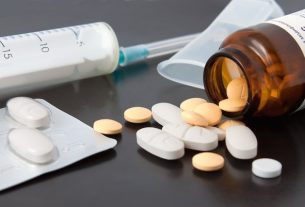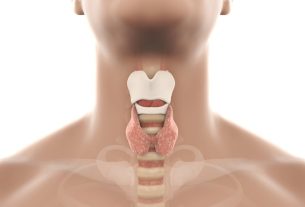High insulin is a condition in which the pancreas produces large amounts of insulin, a hormone responsible for keeping blood sugar levels normal. Generally, this condition is caused by insulin resistance in which the body does not respond well to the effects of the hormone, causing the pancreas to produce more insulin in an attempt to regulate the amount of glucose in the blood.
Generally, high insulin does not cause symptoms, but when blood sugar levels fall below normal values, it can lead to excessive hunger, constant desire to eat sweets and sugar, difficulty concentrating or excessive tiredness, for example. Find out what normal blood sugar values are.
It is important to consult an endocrinologist or general practitioner whenever symptoms appear, so that the diagnosis of high insulin can be made and the most appropriate treatment can be initiated, which can include the use of antidiabetic medications, physical exercise and changes in diet.

Symptoms of high insulin
The main symptoms of high insulin are:
- Excessive hunger;
- Constant desire to eat sweets and sugar;
- Difficulty concentrating;
- Lack of focus or motivation;
- Anxiety, irritability or panic;
- Excessive tiredness;
- Mental confusion;
- Heart palpitation;
- Lack of coordination of movements;
- Dizziness;
- Seizures;
- Fainting.
Furthermore, in children, some signs that insulin is high are difficulty breastfeeding or eating, excessive irritability, discouragement or lack of energy.
In the presence of these symptoms, you should seek medical help immediately or the nearest emergency room if symptoms of a hypoglycemia crisis appear as it can lead to a coma and put your life at risk. Find out what to do in a hypoglycemia crisis.
Possible causes
High insulin is mainly caused by insulin resistance caused mainly by obesity, overweight, lack of physical activity or a diet rich in sugars and carbohydrates, leading to an increase in blood glucose and insulin production by the pancreas in an attempt to regulate insulin levels. sugar in the body.
This insulin resistance can lead to the development of type 2 diabetes. Understand better what type 2 diabetes is and its causes.
Furthermore, although it is rare, high insulin can occur due to more serious situations such as insulinoma, a type of tumor in the pancreas, or due to increased multiplication of cells in the pancreas, in a condition called nesidioblastosis.
How the treatment is carried out
High insulin must be treated by an endocrinologist or general practitioner, according to its cause, and in cases of more serious conditions such as insulinoma or nesidioblastosis, surgery may be indicated to remove the tumor from the pancreas or the complete removal of this organ. Find out how insulinoma is treated.
In the case of insulin resistance, the treatment recommended by the doctor aims to regularize blood sugar levels, with physical activities such as walking or swimming being recommended, at least 3 times a week, in addition to a balanced diet low in sugar and carbohydrates, guided by a nutritionist.
Additionally, your doctor may recommend the use of antidiabetic medications when dietary changes and physical exercise are not effective in controlling blood sugar levels.
Bibliography
- DA SILVA, AA; et al. Role of Hyperinsulinemia and Insulin Resistance in Hypertension: Metabolic Syndrome Revisited. Can J Cardiol. 36. 5; 671-682, 2020
- TEMPLEMAN, N.M.; et al. A causal role for hyperinsulinemia in obesity. J Endocrinol. 232. 3; R173-R183, 2017
- DRAVECKA, I.; LAZUROVA, I. Nesidioblastosis in adults. Neoplasms. 61. 3; 252-6, 2014
- ERION, K. A.; CORKEY, BE Hyperinsulinemia: a Cause of Obesity?. Curr Obes Rep. 6. 2; 178-186, 2017

Sign up for our newsletter and stay up to date with exclusive news
that can transform your routine!
Warning: Undefined array key "title" in /home/storelat/public_html/wp-content/plugins/link-whisper-premium/templates/frontend/related-posts.php on line 12
Warning: Undefined array key "title_tag" in /home/storelat/public_html/wp-content/plugins/link-whisper-premium/templates/frontend/related-posts.php on line 13



